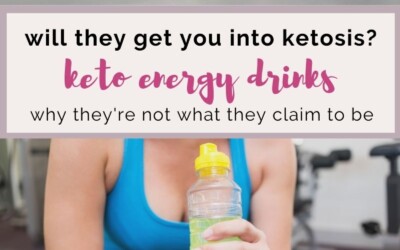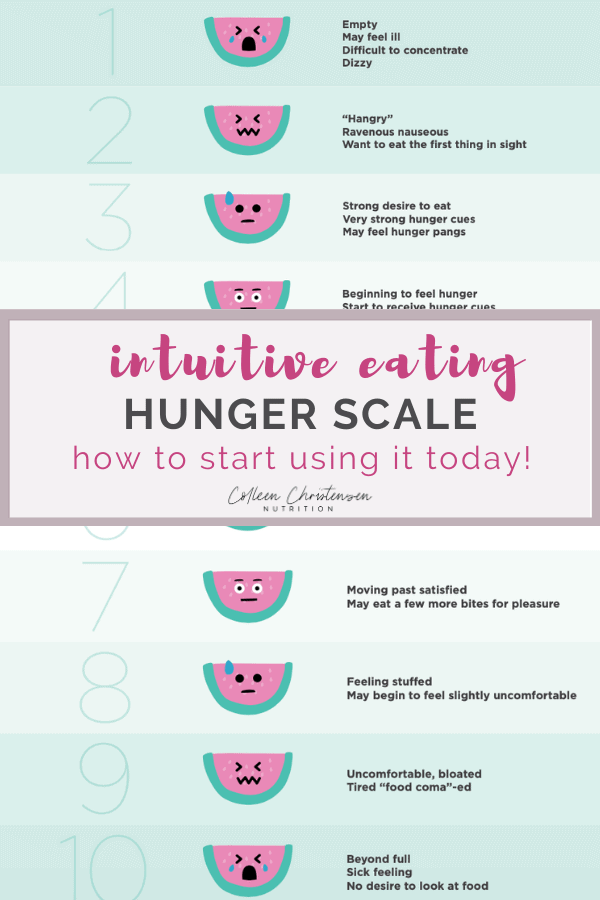Is it me or does it seem like every 5 seconds an ad pops up on social media for some sort of “keto energy drink” that promises to “melt fat” just by sipping? These brands are making some BIG claims here but… are they true? Today I’m diving into the research (or lack thereof!) on these so called fat-blasting keto energy drink supplements!
What’s In A Keto Energy Drink?
Keto supplements, like keto energy drinks, typically contain exogenous (made outside of the body) ketones that you ingest. This differs from the keto diet (checkout my entire blog post on the keto diet here!) because your body isn’t the one necessarily making the ketones to be used for energy. Instead, you’re consuming them.

These exogenous ketone supplements are made in the laboratory setting and there are two different types:
Type One: Ketone Esters
Man… this brings me back to my organic chemistry days in college! This ketone type is attached with a compound called an ester that many essential fatty acids are made of. It is often found in liquid forms such as keto energy drinks or oils. They are more potent because they can elevate ketones to higher levels in the body and last longer. They are also harder to find, more expensive, have a strong taste, and the possible long term effects are unknown.
Type Two: Ketone Salts
Ketone salts are a ketone attached to sodium, potassium, or calcium and is often found in pill and powder forms. They are more well tolerated, more affordable, and can replenish lost electrolytes for those on a very low carb diet. However, they also have an unpleasant taste, may cause GI distress, and can create an excess amount of electrolytes in the body if too much is taken. An excess of electrolytes (such as potassium) can lead to heart irregularities and hydration concerns.
How Keto Energy Drinks (Supposedly) Work
Keto supplement brands claim to help individuals reach ketosis (where the body burns fat for energy rather than carbs) faster by releasing ketone bodies into the bloodstream after taking either ketone esters or salts.
This supplement is a marketed ‘hack’ to enter ketosis without having to strictly monitor your fat, carbohydrate, and protein intake. These supplements also claim to improve focus and mental clarity. The idea is that when eating a regular diet (like when you naturally do when you eat intuitively– think balanced macronutrients of fat, protein, and carbohydrate), you can “shortcut” into ketosis instead of having to follow stringent guidelines.
Sounds great, right? For this reason, these products are also marketed towards individuals not necessarily on the keto diet but who are wanting to get the “fat burning benefits”. (I put that in quotes because it’s kinda not a legit claim.)
Our metabolism is smart and works with what it’s been given and what it’s missing. We have several energy pathways that overlap (that I studied to become a Dietitian and that I worked with extensively as a Metabolic Dietitian!) and ketosis is typically one that we enter when we are not getting enough food, and our body resorts to pulling energy from our fat stores.
Ketosis, using that fat as our energy source, isn’t always a good thing though, and can wreak havoc on normal bodily functions such as hormone regularity and a woman’s menstrual cycle. Our bodies try to avoid ketosis as much as possible for a REASON. They don’t function best there.

What Does the Science Say? Do They Actually Work?
Getting Into Ketosis
A study from England among 15 participants not following the keto diet, found that ketone esters and salts did elevate ketosis after an overnight fast, though this effect only lasted 3-4 hours. This same group later conducted a second study that added flavoring to a keto ester drink and it lowered blood sugar and fatty acids in the blood.
An animal study done in rats over the course of 10 weeks compared diets that included ketone salts and esters with a standard diet. They found that the diets with the supplements lowered blood sugar 1-24 hours after a meal versus the standard diet.
Another study looked at the effect of ketone salts on healthy adults. The salts did induce ketosis with a peak of 2.5 hours (short timeframe, again), however, this one dose trial with only 6 participants mentioned that one individual dropped out of the study due to adverse GI side effects and two other participants had similar but milder symptoms.
Another group of researchers completed a study on the effect ketone ester drinks have on human appetite and weight loss. Participants in this study were following a general diet, and fasted the night before coming into the lab. This study found that the drinks lowered appetite and the desire to eat which lasted for 2-4 hours (seeing a theme here? doesn’t last. Plus, I mean, I’d lose my appetite temporarily too if I drank a gross drink). The researchers in this study also pointed out that more research will need to be done in the future to study if these drinks help decrease appetite within a longer timeframe. To sum it up: even the researchers don’t know if this is anything to get excited about.
Before you get all excited saying “Wahoo I can just drink this drink and then I’ll be burning fat!” It makes sense that bodies would be utilizing ketones if we are ingesting them, right? Your body is utilizing what it’s ingesting… not necessarily what’s stored.

Keto Supplements + Athletics
Keto supplements have been studied for athletic performance and are a hot topic among sports nutrition + military nutrition. A systematic review found several discrepancies between all 16 studies included. Of these studies, 3 presented a positive effect on physical performance, 10 had no effect, and 3 had negative effects. With this information, the review came to the conclusion that there was not enough evidence to support that athletes should take these supplements.
So Do Keto Energy Drinks Actually Do Anything?
Yes, eating/drinking ketones can be used as fuel, but it doesn’t necessarily mean that you’ll ‘stay’ in this metabolic pathway and break into those “unwanted” fat stores (which are actually totally normal BTW) through ketosis as the supplement claims in these few hours. I think it’s a stretch to claim that you’re entering ketosis in this short time (which as a dietitian who specialized in metabolism for years I know this typically takes several days!), and rather your body is using the fuel it’s been given via these supplements, ketones.
Bottom line, consuming ketones does not mean that you are in ketosis. Elevated ketones once consuming these supplements means that your body is utilizing the energy it’s been given via the ketone energy drink or supplement.
Ketones For Blood Sugar Regulation
Both types of supplements also seem to lower blood sugar, however it is not known how long this effect lasts beyond a few hours in humans and a day in animals. I wouldn’t get excited here over utilizing ketone energy drinks for blood sugar management. This is a typical effect seen when we are consuming food with higher amounts of fat – we’re not eating carbohydrates which impact blood sugar, so it makes sense that our blood sugar would be lower.
Side note: I don’t want this to be interpreted as “just avoid consuming carbs!” our bodies LIKE carbs. They’re our preferred energy source and allow our bodies to function optimally! Lower blood sugar does not always mean better. Blood sugar means we have energy to use. This is a huge reason why I make sure to INCLUDE carbs at each meal as a form of gentle nutrition– to ensure my blood sugar doesn’t dip too low!

Ketones For Suppressing Appetite
Among the two types of keto supplements, research indicates that ketone esters seem to have a greater effect on appetite and on increasing ketones in the body faster and longer than ketone salts. As mentioned earlier, these supplements -specifically the esters- taste TERRIBLE and may be in part why they suppress an individual’s appetite – who wants to eat gross food?!
Furthermore, suppressing our appetites when our bodies need fuel is NOT GOOD. When we avoid giving our bodies the food they need, like when we go on diets, we make up for it later.
We know that ⅓ – ⅔ of dieters even regain the weight back and our metabolism slow as a result (i.e. we burn less energy). I have an entire blog post on metabolic damage which explains why not fueling your body appropriately and “suppressing our appetite” does more harm than good.
Why does this happen? Our bodies have something called a “set point weight”. This is essentially the weight that your body wants to be at and where it functions optimally. Just like we all have different shoe sizes we all have different set point weights.
The metabolic “damage” (rather it’s adaptation) is a way that your body actually tries to SAVE you and get you back to your set point weight. Same thing with our appetite coming it HOT after we “suppress” it. Your body is trying to make up for the energy you didn’t give it during the “famine” (i.e. the diet). This is also why we gain weight with each diet we do. You body says “I better pack on extra energy (pounds!) for when the next famine happens so I’m ready!” As a result, weights creep higher and higher.
Final Thoughts on Keto Energy Drinks
Overall, there has been limited research done in humans using keto energy drink supplements. Many of the studies that were done in humans included a small sample size which gives us little information on whether these products actually work. It is also important to note that many studies done on keto supplements were short-term, lasting anywhere from hours to a couple of months. This does not tell us the effects the supplements have beyond this short time frame and the potential negative effects long term (like that weight gain we DO have evidence for with dieting!)
It is very important to remember that while there are so many claims that stem from keto energy drinks & supplement, the science isn’t there and likely won’t ever be there. Ketosis takes time to tap into AS IT SHOULD since our bodies don’t want to be there and avoid it at all costs! Ketosis is a last ditch effort our body uses to get the energy it needs from our fat stores – not something we can induce by cracking open a can of a keto energy drink.
This is typical diet culture marketing, a multibillion industry designed to prey on our insecurities, give us more insecurities, portray a solution that isn’t a solution, and repeat, all in the name of making a quick buck.
Being in tune with our minds and bodies through techniques such as intuitive eating and living a life with no food rules, like I teach in The SociEATy, will provide us with more long-term results than a short term solution
When it comes to any supplement, it’s important to talk with your doctor or a Registered Dietitian Nutritionist (RD/RDN) before starting any new supplement as supplements are not regulated by the FDA.
What are your thoughts on keto supplements? Comment in the discussion below!
Other Blog Posts You Might Like:
XOXO
-Colleen
This blog post was written by Colleen Christensen, RD and researched and written with the help of Amy Sharn, MS, RDN, LD and Haley Hauck, Dietetic Intern.









Leave a Reply